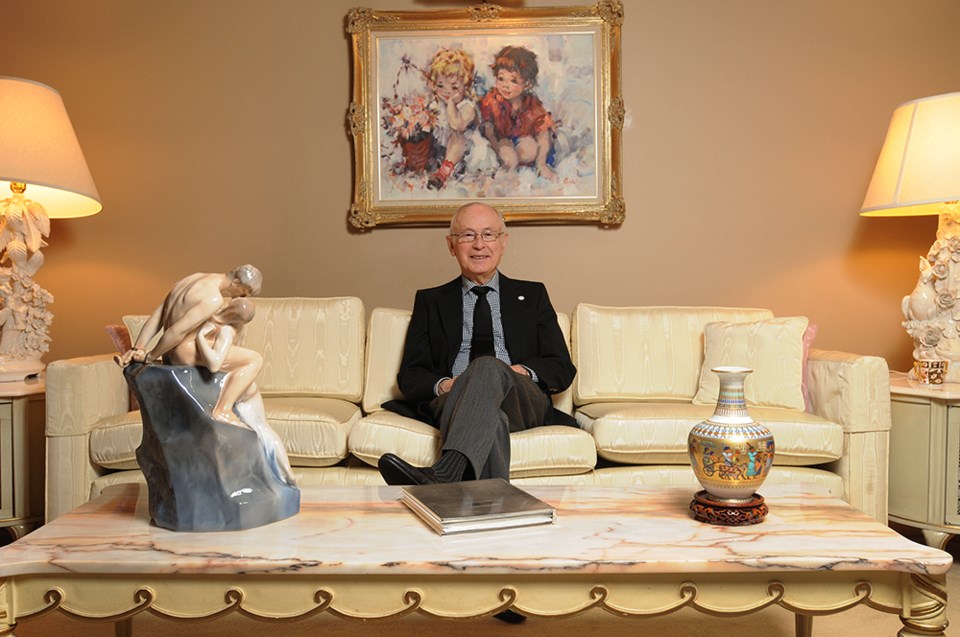Robbie Waisman didn’t speak publicly about his experience of the Holocaust for 36 years after he left the Buchenwald concentration camp. But he’s spread his message of survival so well he’s being honoured with a Caring Canadian Award.
The Governor General’s Caring Canadian Award recognizes individuals who volunteer their time to help others and to build a smarter and more caring nation. The award was created in 1995 and since then hundreds of volunteers have been recognized.
Derek Glazer nominated Waisman because he felt his longtime friend deserved national recognition for educating and inspiring thousands of high school students across Canada and the United States.
“I was able to get letters from lots of students from all over who sent in letters saying how wonderful the speech was and that this speech changed their life,” Glazer said.
Glazer nominated Waisman for appointment to the Order of Canada but learned someone had nominated Waisman four years before.
Glazer said another nomination couldn’t be considered until five years had passed. When officials told Glazer his 82-year-old friend could be awarded a Caring Canadian Award, Glazer approved the choice. They learned Waisman was a recipient last month.
“I feel humbled,” Waisman said. “Of course, having gone through and survived the Holocaust I feel that I have a duty and obligation to make this a better world, and I represent 1.5 million Jewish children that didn’t survive.”
Waisman started sharing his experiences after former Alberta high school teacher Jim Keegstra told his students in the 1980s that the Holocaust never happened.
Sharing his pain isn’t easy. “But I am compensated by the change that I see in youngsters and what they promise to do and what they’re doing,” Waisman said.
Students he’s addressed have raised money to alleviate the suffering of children in Rwanda and around the world.
Polish-born Waisman was 10 years old when he was separated from his family after the Second World War German invasion of Poland and 11 when he was put into the concentration camp by the Nazi occupation. He was one of 426 surviving youth liberated from the camp three years later in 1945.
“When I found out months later I couldn’t go home, everybody was murdered, I didn’t want to live,” he said.
Waisman was the youngest of six children. His brothers, parents, aunts and uncles perished in the attempt by the Nazis to systematically liquidate European Jews. Only he and his sister survived. Waisman was taken to France to start a new life, laden with sorrow and anger.
It wasn’t until a caring adult expressed disappointment in him and his defiant friends and asked them what their dead parents would want for them that they buckled down. One of his friends, Elie Weisel, won a Nobel Peace Prize in 1986.
Waisman moved to Canada in 1949 and settled in Vancouver in 1978. He enjoyed multiple careers, married, had two children and treasures his two grandchildren.
He’s former president of the Vancouver Holocaust Education Centre Society and was featured in the 2002 documentary The Boys of Buchenwald that aired on the Knowledge Network. Waisman also shares his message with survivors of Indian residential schools.
“We were full of rage and we [couldn’t] move on in life,” Waisman said. “This is the message that I give to survivors of the residential schools. I tell them look what we did with our lives. It’s possible. You can do the same. And if you don’t, then you are handing a victory to your perpetrators.”
Waisman hasn’t learned when or where he’ll receive his award certificate and lapel pin.



